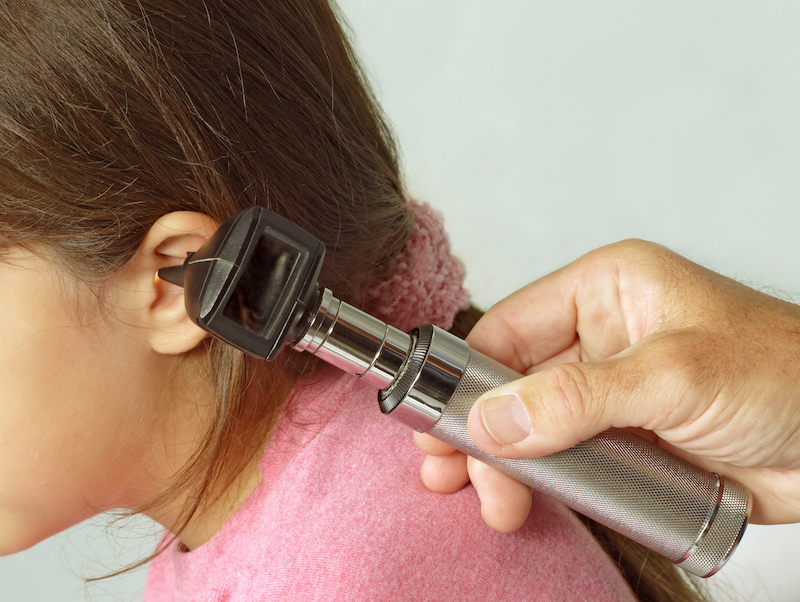
Hearing loss can occur at any time (even after a child passes his or her newborn hearing screening) and for a lot of different reasons. What is important with hearing loss is having a high index of suspicion. All too often, we think our children are just ignoring us or are “late bloomers” whose speech will come as our children get older. Parental concern is one of the most sensitive indicators available for late onset hearing changes.
If you ever think your child’s hearing may be an issue, don’t hesitate to ask your pediatrician for a formal hearing test performed by an audiologist with experience in testing children. If your child fails a newborn hearing screening, a hearing screening at school, or at your pediatrician’s office; a formal hearing test is necessary by an experienced audiologist. A hearing test is easy to perform, non-invasive and very informative.
Frequently, even with the help of an otolaryngologist, the reason for your child’s hearing loss may never be revealed. But the reason for the hearing loss is not as important as what we should do about it once we know permanent hearing loss exists:
- Identify it early.
- Get rehabilitation, if necessary, as soon as possible, such as hearing aids or a cochlear implant if hearing aids are not enough.
- Take precautions to maximize speech development with speech therapy, if necessary. Hearing loss that occurs in the infant and toddler years can adversely affect your child’s ability to communicate with you and others.
- Monitor your child’s hearing status at least once a year.
- Communicate your child’s hearing loss with educators at your child’s school. If they see a change in your child’s academic performance or behavior, they can advise you to have your child’s hearing checked earlier than what you may already have scheduled.
- Protect your child’s hearing from prolonged exposure to loud noise, such as in a movie theatre or sporting event with loud speakers, by using ear plugs or ear muffs.
- Talk to your children about how important and valuable their hearing is and the need to protect and preserve it. You may not always be there to move them away from loud noise or to make sure their MP3 players are at a manageable volume level. Set a good example with your children by keeping your own personal electronic devices at manageable volume levels.
- If your child has a history of permanent hearing loss, ask your primary care physician and otolaryngologist to be more aggressive about treating ear fluid and infections. Your otolaryngologist may have a lower threshold of putting ear tubes in when chronic ear fluid does not resolve on its own.
Otolaryngologists at Texas Children's Hospital can help guide you through the necessary medical evaluations if permanent hearing loss is diagnosed. Our audiologists and speech therapists, in conjunction with a collaboration formed with the Texas Hearing Institute, are fully equipped to provide your child everything he or she may need in order to hear and speak at their very best.



